#archduchess sophie of austria
Text
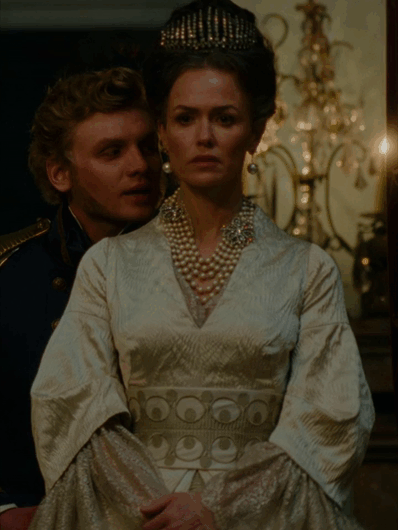


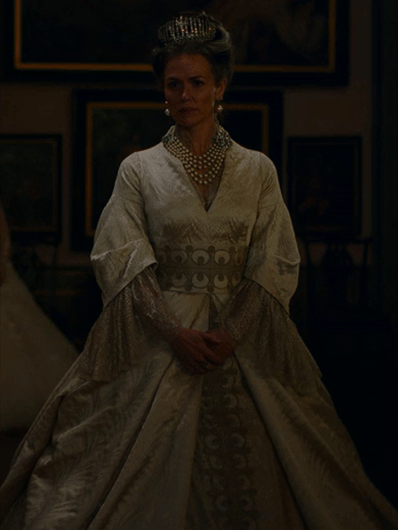
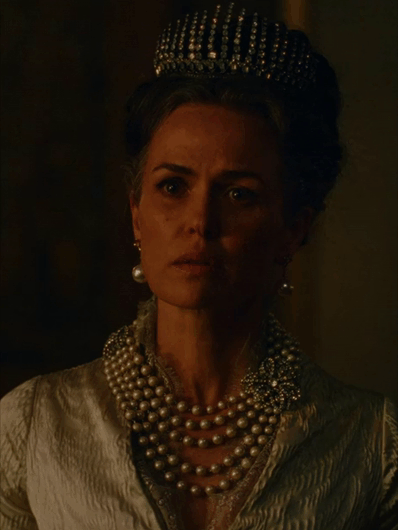


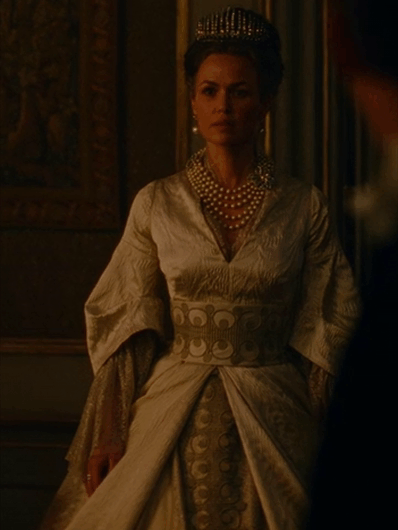


The Empress + Costumes
Archduchess Sophie of Austria's white & golden dress in Season 01, Episode 02 & 03.
#The Empress#The Empress (2022)#Die Kaiserin#Archduchess Sophie of Austria#costumes#costume drama#costumesource#period drama#perioddramaedit#1800s#19th century#white#gold#Vienna#Austria#Europe
66 notes
·
View notes
Text
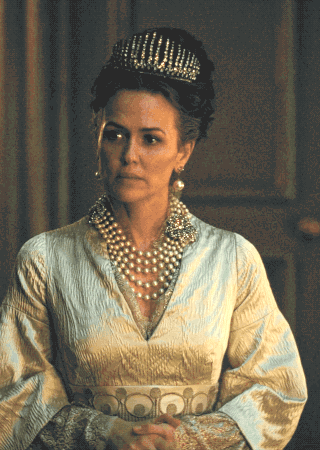
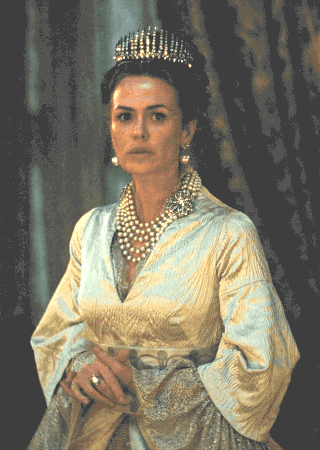
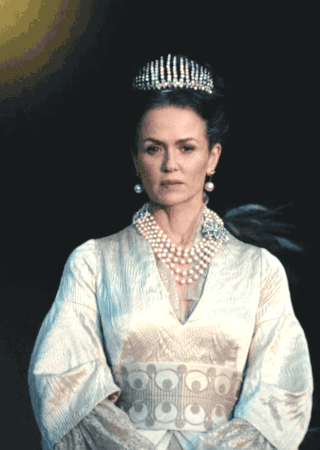

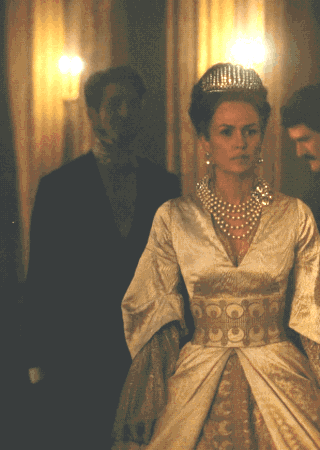



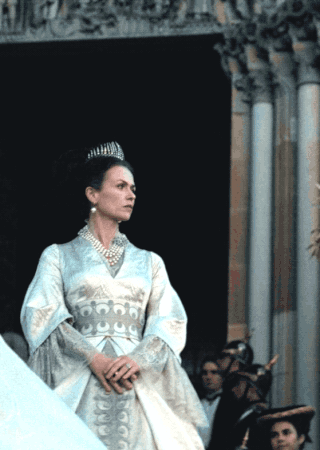



(Almost) Every Costume Per Episode + Archduchess Sophie's white gown in 1x02,3
#The Empress#TheEmpressEdit#Die Kaiserin#DieKaiserinEdit#weloveperioddrama#perioddramaedit#period drama#historical drama#Archduchess Sophie#The Arrival#The Wedding#costumeedit#costumes#costume drama#Almost Every Costume Per Episode#Archduchess Sophie of Austria#Sophie of Bavaria#Awkward-Sultana
35 notes
·
View notes
Text
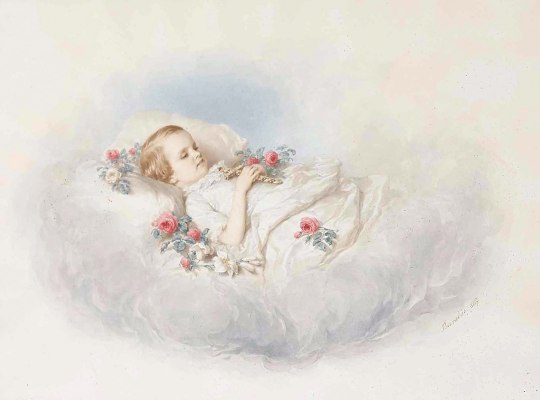
It was 10.30 a.m. and Sophie was in a critical condition. The emperor would later report that he and Elisabeth found her “debilitated but completely calm”. The night before, the dismayed parents learned from Sophie's attendants that “the poor child had [suffered] a great deal”. Based on the available data, we know that when the parents arrived, she was completely dehydrated and her kidneys were already failing. There was nothing more to be done: at 3 p.m. Sophie went into agony. Her “involuntary cries”, as Franz Joseph would later tell his mother, were signs of impending death. Her parents kept vigil at her bedside. The doctors, aja and nanny also gathered in the dying child's room. Several times, Elisabeth tried to elicit a reaction from her. She talked to her, asked her questions. Shortly before her death, she asked her again: “Baby, where is Papa?”. But she could no longer speak. In response to the question, she merely “turned her beautiful, deep eyes towards him [Franz Joseph]”. In her last minutes of life, Franz Joseph pressed a crucifix into her small hands and Elisabeth placed the cross, which had always been under her pillow when her daughters were born, under Sophie's. Shortly afterwards, her daughter stopped breathing. The “Baby” was dead.
Winkelhofer, Martina (2022). Sissi. La vera storia. Il camino della giovane imperatrice (Translation done by DeepL. Please keep in mind that in a machine translation a lot of nuance may/will be lost)
ON THIS DAY, IN 1857, ARCHDUCHESS SOPHIE FRIEDERIKE OF AUSTRIA DIED AGED TWO-YEARS-OLD. She was the eldest child of Emperor Franz Josef I of Austria and his wife Duchess Elisabeth in Bavaria. Accompanying their parents, Sophie and her younger sister Gisela went to Hungary for a two-months tour. But soon after their arrival, Gisela felt ill with fever, and a day later also did Sophie. The beginning of the tour was postponed for ten days. Gisela recovered, but Sophie worsened, and her father called upon an experienced doctor from Vienna to attend her. She was diagnosed with typhoid. After some difficult days Sophie improved and seemed out of danger, so the Imperial couple left, but only days later while in Debrecen they received an urgent message informing them that their daughter was very ill. They rushed back to Buda, where they found their daughter already at death's door.
Sophie's body was embalmed, but on the orders of her father, her internal organs weren't removed as the traditional Habsburg mortuary rites required. Her coffin was exhibited in Buda, where people was able said goodbye to her for a whole day. After the viewing, her remains were taken to the Capuchin Crypt in Vienna, the traditional burial place of the Habsburgs.
#:((((((#also i simplified it a bit for the sake of this post not being too long but elisabeth and franz josef had tried to get back to sophie befor#but they got a medical report saying that she was fine so they continued their journey for a day more before receiving the urgent message#archduke albrecht had insisted on the tour to go on despite the girls illness and elisabeth felt really guilty about it afterwards :((((#archduchess sophie of austria#empress elisabeth of austria#franz josef i of austria#house of habsburg#historian: martina winkelhofer#on this day in history
60 notes
·
View notes
Text
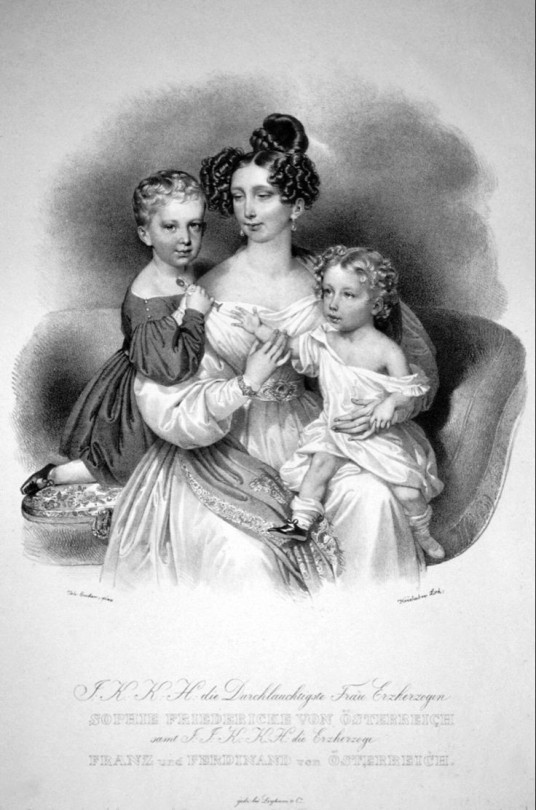
Archduchess Sophie of Austria with her two eldest children, Archduke Franz Joseph (future Emperor of Austria) and Archduke Ferdinand Maximilian (future Emperor of Mexico)
#archduchess sophie of austria#emperor franz joseph#emperor maximiliano of mexico#austrian imperial family#mexican imperial family#austrian history#mexican history#house of habsburg
15 notes
·
View notes
Text

“I believe that the death of Empress Elisabeth of Austria's first daughter, known as 'Sissi', little Sofia Frederica, had a profound impact on her emotional stability and may have contributed to the disorders that the empress faced. It seems that the Austrian court was unable to adequately accommodate Sissi's grief.” - Submitted by Anonymous
22 notes
·
View notes
Text
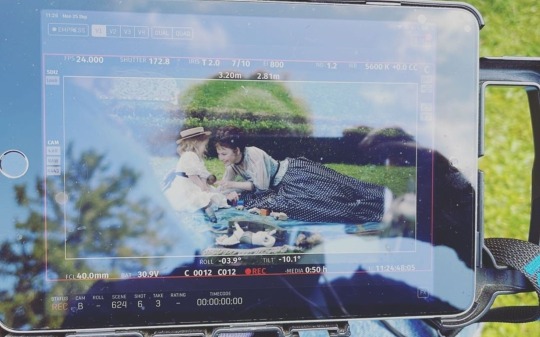
Devrim Lingnau (Empress Elisabeth) and an unknown child actress as either Archduchess Sophie or Archduchess Gisela on set of the second season of The Empress (2022).
#The Empress#The Empress (2022)#Die Kaiserin#costume drama#historical drama#period drama#devrim lingnau#Elisabeth in Bavaria#elisabeth of austria hungary#elisabeth of austria#Archduchess Sophie of Austria#archduchess gisela of austria#german tv#german series#behind the scenes#Netflix
26 notes
·
View notes
Photo






Melika Foroutan as Archduchess Sophie of Austria in The Empress - Season 01, Episode 02 “The Arrival”
#The Empress#The Empress (2022)#Die Kaiserin#period drama#perioddramaedit#costume drama#historical drama#Archduchess Sophie#Archduchess Sophie of Austria#Sophie of Bavaria
81 notes
·
View notes
Text
I really dislike the idea of Sophie and Napoleon II being romantically depicted. I mean, just because 2 people of the opposite gender are close and care for each other that doesn't mean they're together.. I think they had more of a sibling relationship.
#napoleon bonaparte#napoleon II#archduchess sophie of austria#l'aiglon#i mean i understand 60s movies but still#idk why i posted this#this is random#yes my 1st post that i am writing is commplaining#still waiting for a movie about an accurate movie about them
11 notes
·
View notes
Note
Hi, Who do you think was FJ’s favourite child or at least he showed the most affection to? Sisi loved Marie Valerie the most ( that’s perhaps cuz she was never allowed to raise her other 2 kids) but which child do u think was Franz’s?
Franz was more affectionate towards his daughters especially Gisela, he treasured the first poem she wrote for him on Christmas. He was nice with Valerie as well but he was too strict with Rudolf. I mean he might have loved his son in his way but put him through torturous training to make him strong. (He might have thought he was doing what’s best for Rudolf but the boy must have felt abandoned and unloved)
I definitely agree with you. Franz Joseph 1000000% to hard on Rudolf. He definitely loved him to an extent but was way to hard on him and put WAY to much pressure on him.
I think that his favorite was Valerie. I wouldn’t know enough about him to answer a definite why she was but this is just my opinion. In this case, Valerie had the highest chance because i think because she was Sisi’s favorite, that could’ve had a bigger influence of Franz himself than ever thought. Franz loved his wife very much so the fact that Sisi got to raise Valerie instead of having Franz’s own mother raising the two elder ones, that could’ve meant that there was a more homely environment for Valerie to grow up in and could’ve triggered some parental instinct in Franz.
But sometimes I think we forget that Sisi and Franz had another child, their eldest daughter Sophie who died at age 2. I think that there was a high chance that this daughter was Franz’s favorite. She was their first child and definitely meant a lot to both of them. She was there first go at being parents who were united together, she probably united them in more ways possible. When she died, Franz’s grief was extremely painful and I think that some hidden part of him never truly recovered or realized how much Sophie had meant to him.
Thank you for asking this question and sorry this took so long to answer!
#answered ask#austrian royal family#house of habsburg#emperor franz joseph i of austria#archduchess marie Valerie of Austria#Archduchess Sophie of Austria
1 note
·
View note
Photo

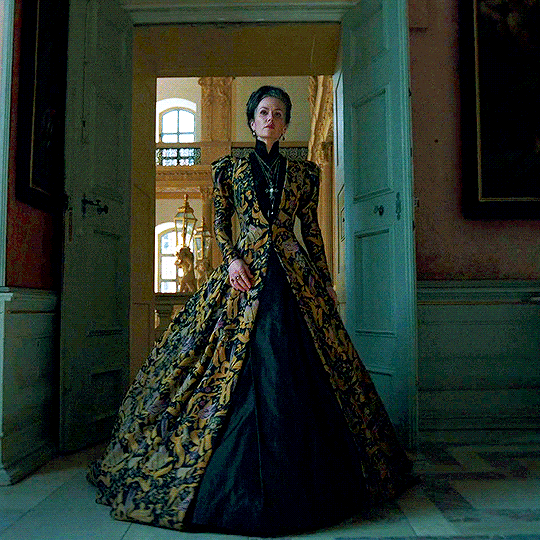
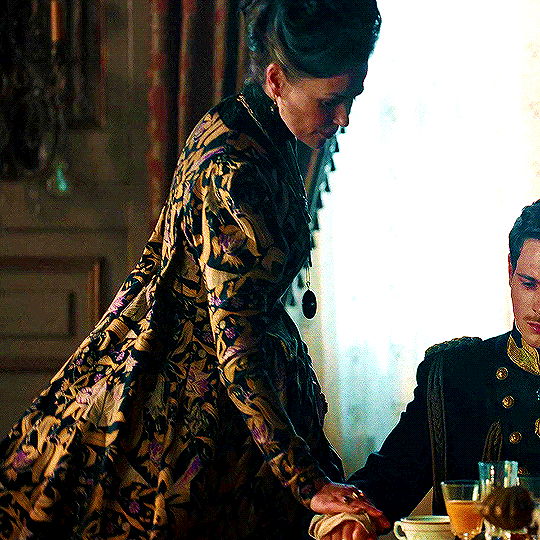

COSTUME APPRECIATION
Princess Sophie, Archduchess of Austria, The Empress
#sophie of bavaria#princess sophie archduchess of austria#melika foroutan#the empress#theempressedit#perioddramaedit#periodedit#gifshistorical#userperioddrama#costumesource#gifs*#ca*#empress*
200 notes
·
View notes
Photo

#Archduchess Margarete Sophie#1900s#habsburg#austria#edwardian#colorized#colorization#colorized photo
15 notes
·
View notes
Text

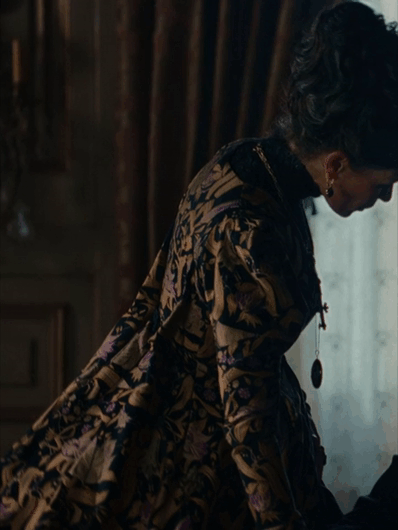
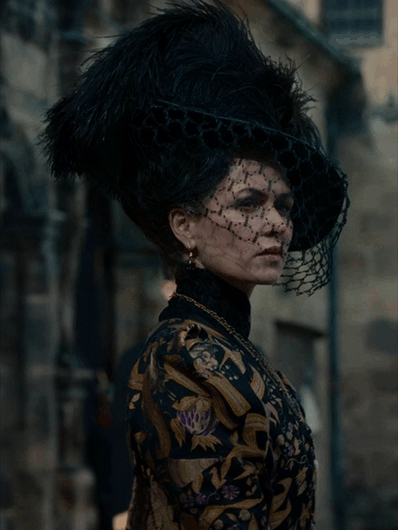

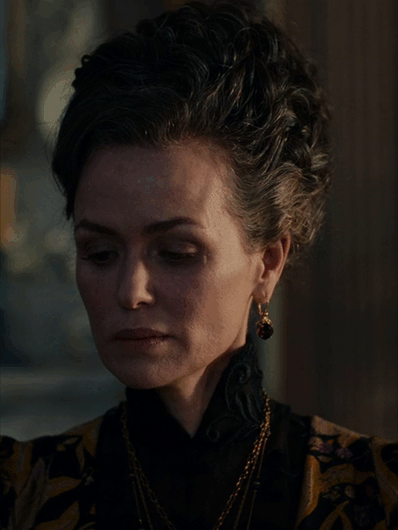
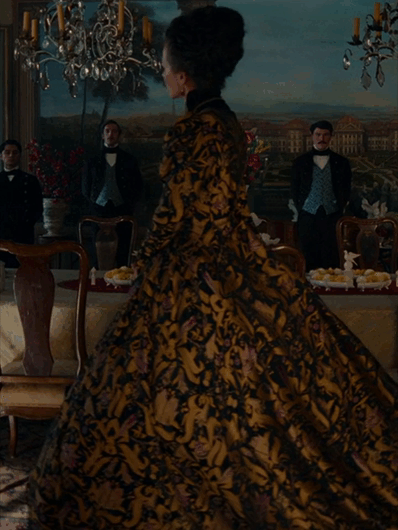


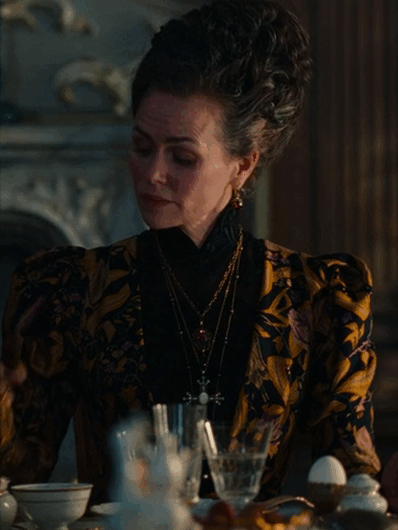
The Empress + Costumes
Archduchess Sophie of Austria's black, golden & purple dress in Season 01, Episode 01.
#The Empress#The Empress (2022)#Die Kaiserin#Archduchess Sophie of Austria#costumes#costume drama#costumesource#period drama#perioddramaedit#1800s#19th century#black#gold#purple#Vienna#Austria#Europe
44 notes
·
View notes
Text
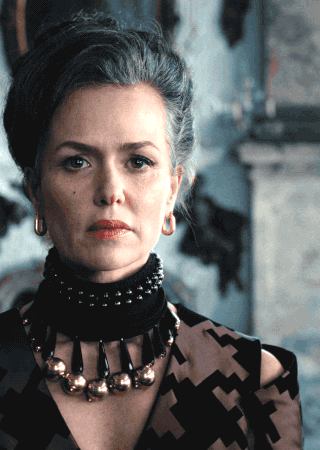

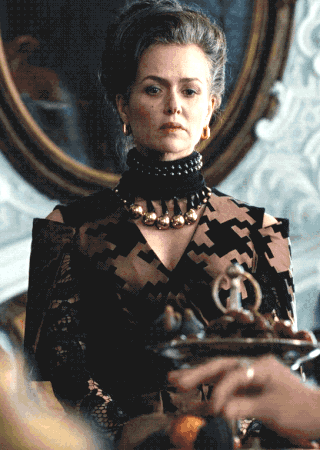


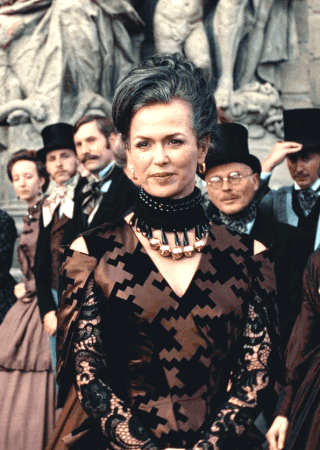



(Almost) Every Costume Per Episode + Archduchess Sophie's brown gown with black print in 1x02
#The Empress#TheEmpressEdit#Die Kaiserin#DieKaiserinEdit#weloveperioddrama#perioddramaedit#period drama#historical drama#Archduchess Sophie#The Arrival#costumeedit#costumes#costume drama#Almost Every Costume Per Episode#Archduchess Sophie of Austria#Sophie of Bavaria#Awkward-Sultana
25 notes
·
View notes
Text
“I can bring her comfort and respond to her pain, which few can understand as I can”

Past May 29 was the 166th anniversary of the death of Archduchess Sophie, the eldest child of Emperor Franz Josef and Empress Elisabeth; and because of a turn of fate, the day before that was the 151th anniversary of the death Sophie’s namesake, her grandmother Archduchess Sophie, born a Princess of Bavaria.
In Elisabeth's biographies Baby Sophie's death tends to be portrayed as the first in what would be a long list of tragedies in the Empress' life. And yet many of them also pay little attention to it, dedicating it one or two paragraphs. But a piece of information they (almost) never fail to give in the few lines they use is this: that Archduchess Sophie actively blamed the infant’s death on her daughter-in-law, adding more pain to the already devastated young mother.
There are different variations in each biography, but the story goes as it follows: after the Hungarian tour was announced, Elisabeth had insisted in taking both of her daughters to the trip, which infuriated the Archduchess, since she thought the girls were to delicate to make the trip. A fight broke out. The court doctor decided that the archduchesses were in conditions to go to Hungary, so they went. But the girls fell ill soon after arriving, and eventually the eldest died. Archduchess Sophie thought that the child's death was Elisabeth's fault for taking her against her wishes, and told her so. This story is no more harshly portrayed than in the miniseries Sisi (2009), where Sophie tells “it’s your fault” to Elisabeth as she cries over her daughter's coffin.


This was what I read when I first learned about the little girl’s passing, and, as a newby, I didn’t question it. But as I continued to research Elisabeth and the Imperial family, I became interested in Sophie not as Sisi’s mother-in-law, but as an individual, and since then I started to grab this kind of statements with a grain of salt. Where does this come from, anyway? From someone’s correspondance? From a witness? Did this story originated around the time of the girl's death, or only later on?
Lately I finally got my hands on Unsere liebe Sisi, a collection of Sophie’s letters regarding her daughter-in-law. I read the chapter dedicated to Baby Sophie's death, and what I found in those letters was a far cry from what was depicted in Sisi (2009). So what was Archduchess Sophie's reaction to her granddaughter's death?
Before I beging sharing the letters, I must make the disclaimer that I don't know German and that I used a machine translation, so the nuances are lost. Also Sophie had the habit of abbreviating words, I could guess most of them with my very limited knowledge of German vocabulary but some I had no idea. So that affected the translation in some cases. Lastly, all the bolding in the letters is mine. That being said, let's beging.
First let's put the 1857 trip into context. This was a planned State visit, not a vacation. Relations with Hungary remained tense after the 1849 counter-revolution, so the goal of the tour was to try to reconcile the Hungarians with the still unpopular Emperor. Since the Italian tour of 1856 had gone relatively well, mainly do the young Empress' presence, they tried to replicate the effect in Hungary. They were set to depart on May 4 and stay until June 23. Everyday was packed with activities: meeting with dignitaries and Church representatives, attending to Mass, public parades, visits to every important city in Hungary, gala dinners, etc. The imperial couple's daughters were not meant to appear at any public event, they had been taken to be closer to their parents, but still they were to stay in Buda with their nannies for the entirety of the tour.
Although I'm yet to find a biography that cites a single source about the alleged fight between Elisabeth and her mother-in-law on whether taking the girls to Hungary or not, it could be possible, since Sophie doesn't sound terribly excited about the girls going. In a letter to her son Archduke Max dated May 7 she wrote of the enthusiasm which the imperial couple had been received. On the arrival of the little archduchesses to Hungary a day after their parents she says:
The children arrived on Tuesday at half past seven in the evening in bad weather, but were nevertheless received by a large crowd with stormy cheers; I only hope that they did not scream and cry in their terror…
Only a few days after the tour begun, Gisela fell ill with fever. At first it was thought that it was do to teething, but the next day Baby Sophie also fell ill. As the days passed Gisela got better, but her sister only got worse. When this happened Archduchess Sophie was in Saxony with her twin sister Queen Marie. Slowly, news on the girls’ health reached her. Again to Max she wrote on May 22:
Franzi writes me much and in detail about our poor little Sophie's unfortunately very serious illness, which, however, on the 19th, when he wrote to me, he did not yet seem to believe was dangerous.
(…) I immediately asked Franzi by telegraph for news of the evening, and when we returned yesterday from a beautiful promenade... I received a very reassuring telegraphic dispatch, which I read with fear and anxiety in the presence of good old Cuz.... [not identified], who had taken such deep pity on me and who had prayed so fervently with Aunt Marie and me for our poor baby during the afternoon service in the Chapel on the hill...
In this letter Sophie goes in detail on Baby Sophie’s agony and her parents desperation, but what I wanted to highlight was the ending, which shows how anguished the Archduchess was over her granddaughter’s condition.
Two days later Sophie improved and the parents were given the all-clear to continue their trip. Sophie informed her son Archduke Karl Ludwig on May 24:
... I am now doubly enjoying the pleasant life with good Aunt Marie, since the news from Ofen about our poor baby has been so reassuring. The poor parents were able to leave the children on Saturday with a lighter heart [in order to continue their journey through Hungary], but it takes me a lot to have to be separated from them now. By the way, Gisela has been well and fresh again for a long time
But sadly Baby Sophie's recovery was only momentary, and she died five days later. The whole family was heartbroken. Sophie's pain comes across her letters, but also her faith. She, like her son, tried to accept the child's death with Catholic resignation. She opens this letter from May 31 to her sister Ludovika, Elisabeth's mother, like this:
So we still had to give up our beloved child. She was to die in Hungary; that was God's will; we must hold fast to this faith so as not to perish in lamentation.
She describes Ludovika of the miserable state she found her son and his wife, then she tells her that:
In the short time during which God lent us the sweet child, she spread so much love, joy and happiness over all of us, as her small but already quite abundant powers made possible. There is one thought that is firmly in my mind, which I thought over and over again when I saw the great sacrifice that God demanded of our poor children coming ever closer, namely, thanks to God that you, my poor, much-tried Luise, did not know our dear baby in all her freshness of life, cheerfulness and such charming, loving kindness as I did, for this memory is now my greatest torment.
Sophie was no stranger to this kind of grief. She herself had once lost an infant daughter, Maria Anna, who died after a seizure aged only four-years-old. There is no doubt her little girl was on her mind, since she said it herself. To Karl Ludwig she wrote on June 6:
Sisi feels the need to speak of her beloved child, to surround herself with everything that reminds her of her child, so I can thank God that I can bring her comfort and respond to her pain, which few can understand as I can.
She also remembered her in a letter to Max dated June 4:
...The poor little girl still suffered a lot the last night, but when, thank God, her parents arrived on the 29th at half past ten in the morning, wonderfully fast from Debrecen, which they had left about noon the day before, she was already completely exhausted, but calm and remained conscious until 10 minutes before her death, which took place at half past ten in the evening. The agony began at 3 o'clock in the afternoon, but despite some involuntary cries - as with Anna - she does not seem to have suffered
It had been seventeen years since the little Archduchess Maria Anna passed away, but her memory was still present in her mother. Sophie truly understood better than anyone else the pain of loosing a young daughter to an illness, and had nothing but sympathy towards Elisabeth. To think that she, out of all people, would tell her daughter-in-law that her beloved child’s death was her fault seems almost vile to me after reading Sophie’s letters.
But, even if she didn’t say it to her face, did Sophie think Elisabeth somehow was to blame?
If she did, she never wrote it down. I'm sure that if a letter or diary entry from Sophie explicitly blaming Elisabeth existed, it would've been published in every single book about the empress in existence. But in her letters she only talks about the grief of the family and trusting God's will, though in this letter to Max there is an indication that she did thought Hungary had been the cause of the girl's illness:
It was as if the poor child clearly felt that the air in Hungary was not good for her, for even before and during her illness she often said 'Please go to Milan', where she was so well (...) Sisi and Franzi told me that the little one had been so beautiful in the last hour and after death, she also looked so friendly the other day [the day after her death], where the parents still saw her before and after mass before her departure. It hurt Sisi so much to have to leave her, she would have liked to come back with her, but she did not want to let the Emperor leave alone. It was also a heavy sacrifice for her to have to leave the dear poor child on the 23rd, when she was only apparently better, in order to continue the journey through Hungary. She only gave in to [Archduke] Albrecht's imploring plea, who was so keen to give the ever-loyal Jazyphians and Cumanians [?] the good fortune of being able to admire the Empress, who made such a favorable impression everywhere in Hungary as well as in Italy. Now it is so painful for the poorest woman to think that she was away from her beloved child for the last days of her life. I told her in consolation that God would certainly give her credit for the difficult sacrifice.
Not only seems that Elisabeth herself felt guilty about having been away from her child while she was ill, but Sophie actually tried to put her mind at ease, instead of making her feel even more guilty. Also in this letter a figure rather forgotten in the 1857 Hungarian tour emerges, and whom perhaps did had some blame to bear: Archduke Albrecht.
Albrecht was a grandson of Leopold II, Holy Roman Emperor, and the head of the Teschen Habsburg branch. He was the archduke who had the most influence on Franz Josef, and had been governor of Hungary since 1851. Every step of the tour had been planned by him, and it was because of his insistance that the imperial couple continued with their trip when Baby Sophie only seemed to have improved, despite Elisabeth wanting to stay with her child. We don't know if he ever felt remorse for continuing the tour during the last days of Baby Sophie's life, but interestingly Archduchess Sophie notes that she found Albrecht in Laxemburg, where the young Empress was staying:
(...) The day before yesterday I took Ludwig [Viktor] with me, who was just due for a few hours without lessons, and found Albrecht and Hildegard [his wife, and also a first cousin of Elisabeth] in Laxenburg.... Albrecht returns to Ofen (Budapest) on Friday.
Albrecht and Hildegard probably went to give their condolences to the grieving mother, but we don't know how their meeting went down.
So, if it isn't in the Archduchess' correspondance, where did the idea of Sophie blaming Elisabeth originated?
This time I didn't need to look for some obscure source to find a (likely) answer: it's Egon Corti's classic biography of Empress Elisabeth.
Elizabeth wept from morning till night and talked of nothing but her baby, and she felt her first meeting with the archduchess Sophie most terribly. Seeing the Empress’ grief, her mother-in-law tactfully refrained from comment, but in every order and every word Elizabeth thought she could detect an unspoken reproach, suggesting that the disaster would not have happened if only they had listened to the Archduchess’ wise and experienced advice. Elizabeth was now nineteen, but she felt as though she had been married for at least ten years and could not understand that Sophie’s attitude toward her was still that of a sensible old mother toward an inexperienced child.
Although his biography is generally well-sourced, he doesn't provide any source for this statement. Perhaps it's Countess Mária Festetics' diary? But if that is the source, why not say? Or directly quote it?
It should be noted, however, that according to Corti, Elisabeth thought that her mother-in-law blamed her, not that Sophie told her so. The Empress was full of guilt, so it wouldn't surprise me if she truly felt that everyone, and specially Sophie, held her responsible for what happened. I don't know if Corti was the first biographer in making this claim (during the 1920s there were a couple of biographies of Elisabeth that I hadn't had access), but his work is both very popular and highly regarded, so posterior biographers were likely quoting him when they repeated this claim. But the more the story was repeated, the more it changed, until Sophie turned into a wicked mother-in-law torturing a young grieving mother for something she had no control of, instead of the heartbroken grandmother that, again, had lost her little girl.
#in my sophie apologist era#i wanted this to be out for the 29 or the 30 but life (university) happened#sophie of bavaria archduchess of austria#empress elisabeth of austria#archduchess sophie of austria#archduke albrecht of austria duke of teschen#franz josef i of austria#sisi (2009)
42 notes
·
View notes
Text
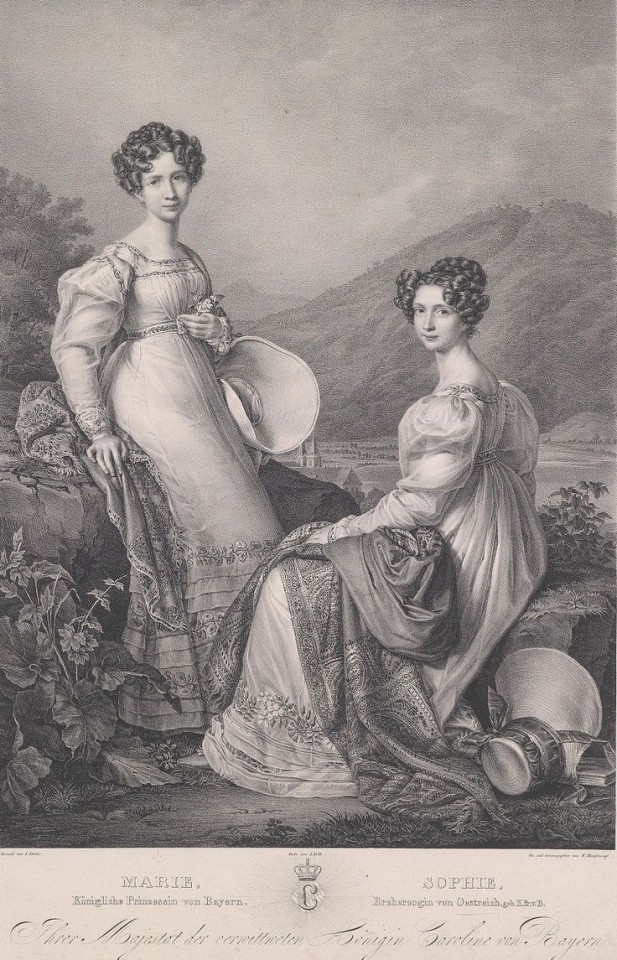
Archduchess Sophie of Austria - Hungary with her identical twin sister Princess Maria Anna of Bavaria, future Queen of Saxony.
#archduchess sophie of austria#queen maria anna of saxony#austrian imperial family#saxon royalty#austrian history#german history#house of habsburg#house of wettin
40 notes
·
View notes
Text

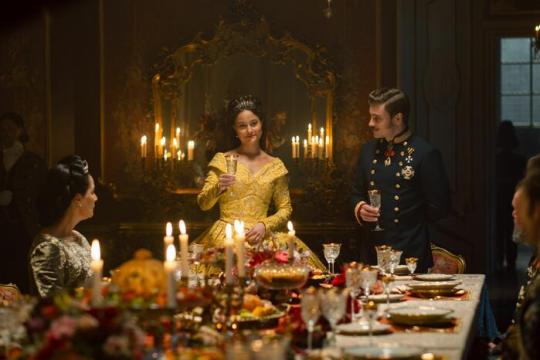
Dominique Devenport, Jannik Schümann and Désirée Nosbusch as Empress Elisabeth, Emperor Franz Joseph and Archduchess Sophie in new stills from the third season of Sisi (2021).
#Sisi#Sisi (2021)#costume drama#historical drama#period drama#Dominique Devenport#jannik schümann#Désirée Nosbusch#Elisabeth in Bavaria#elisabeth of austria hungary#elisabeth of austria#emperor franz joseph#franz joseph of austria#Archduchess Sophie of Austria#Princess Sophie of Bavaria#german tv#german series#sisi.rtl#armands virbulis
15 notes
·
View notes